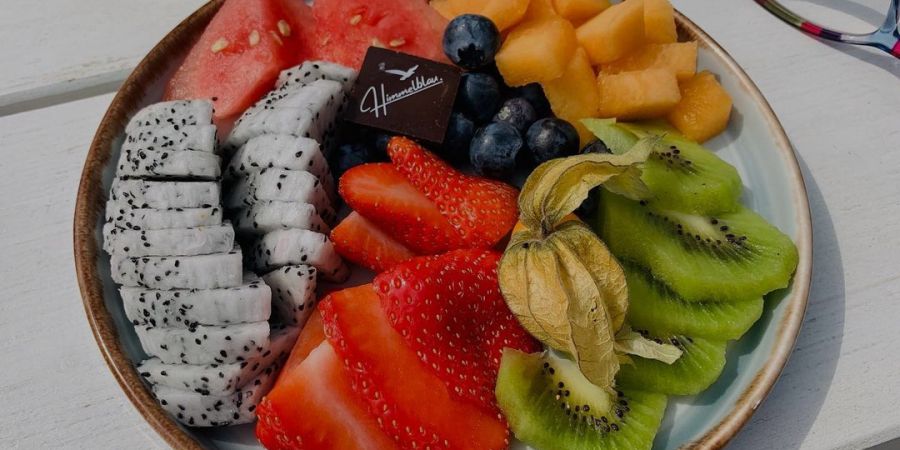

1. Apples
Apples are one of the most popular fruits and are rich in nutrients. Rich in water-soluble and insoluble fibers such as
pectin, hemicellulose, and cellulose. They help control blood sugar levels, promote proper digestion, and support gut and heart health
In addition, they are an excellent source of vitamin C and plant polyphenols, the disease-fighting compounds found in plants. In fact, eating apples regularly can reduce your risk of heart disease, stroke, cancer, overweight, obesity, and neuropathy. Most of the polyphenols in
apples are just below the skin, so be sure to eat them for maximum benefit.
2. Blueberries
Blueberries are known for their antioxidant and anti-inflammatory properties.
In particular, they are rich in plant pigments and flavonoids, anthocyanins, which give blueberries a distinctive blue-purple color. This compound helps fight free radicals that damage cells that can lead to disease.
Many studies point to the health benefits of anthocyanin-rich diets. B. Reduced risk of type 2 diabetes, heart disease, overweight, obesity, high blood pressure, certain types of cancer, and cognitive decline Sources, trusted sources, trusted sources, trusted sources, trusted sources
For example, a study of more than 200,000 participants observed a five-fold increase in the risk of type 2 diabetes for every 17 grams of anthocyanin-rich berries per day.
Other anthocyanin-rich berries include blackberries, blueberries, elderberries, cherries, and chokeberries
3 banana
The benefits of bananas exceed the potassium content. In addition to providing 7% of the daily value of potassium (DV), bananas contain (15 reliable sources):
Vitamin B6: 27% of DV.
Vitamin C: 12% of DV
Magnesium: 8% of domestic violence
In addition, we offer a wide range of botanical compounds called polyphenols and phytosterols, both of which support your overall health. It is also rich in prebiotics, a type of fiber that promotes the growth of beneficial bacteria in the intestines. Note that
green immature bananas contain more resistant starch than ripe bananas and are an excellent source of fiber pectin. Both are associated with a variety of health benefits, including improved glycemic control and improved gastrointestinal health.
On the other hand, ripe bananas are an excellent source of digestible carbohydrates and are ideal for pre-training refueling.
4. Orange
Known for being rich in Vitamin C, oranges provide 91% of domestic violence in a single fruit. It is also rich in potassium, folic acid, thiamine (vitamin B1), dietary fiber and vegetable polyphenols. Eating whole oranges can reduce postprandial inflammation, blood pressure, cholesterol, and blood sugar levels, according to 4,444 studies.
100% orange juice provides large amounts of nutrients and antioxidants, but is usually deficient in fiber. Choose a juice that does not contain pulp, as varieties that contain pulp contain fiber.
Anyway, try eating more whole oranges


